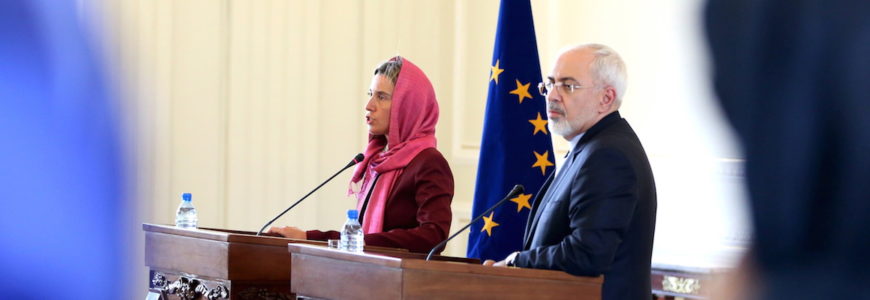
Iran’s decision to scale down its commitments under the 2015 nuclear deal abandoned by President Donald Trump signifies a serious foreign policy failure for the EU and its member states. They have acted too meekly and ineffectively in the face of unilateral U.S. sanctions, and this unnecessary softness may well come back to haunt them as the U.S. use of extraterritorial sanctions expands.
Last year, after Trump pulled the U.S. out of the agreement known as the Joint Comprehensive Plan of Action, meant to restrict Iran’s nuclear program, European leaders refused to follow suit and moved to protect the deal as the U.S. reimposed harsh sanctions on Iran. First, the EU expanded an existing device, the so-called blocking statute, meant to protect European companies against extraterritorial U.S. sanctions. The statute declares it a transgression to comply with the sanctions, nullifies any foreign court decisions based on them and enables European companies to seek compensation in EU courts for any damages arising from them.
Then, the EU moved to set up a special purpose vehicle to enable trade with Iran to bypass normal financial channels, which would have exposed such trade to U.S. sanctions enforcement. After months of buck-passing, Instex, the Instrument for Supporting Trade Exchanges, was set up in France at the end of January.

